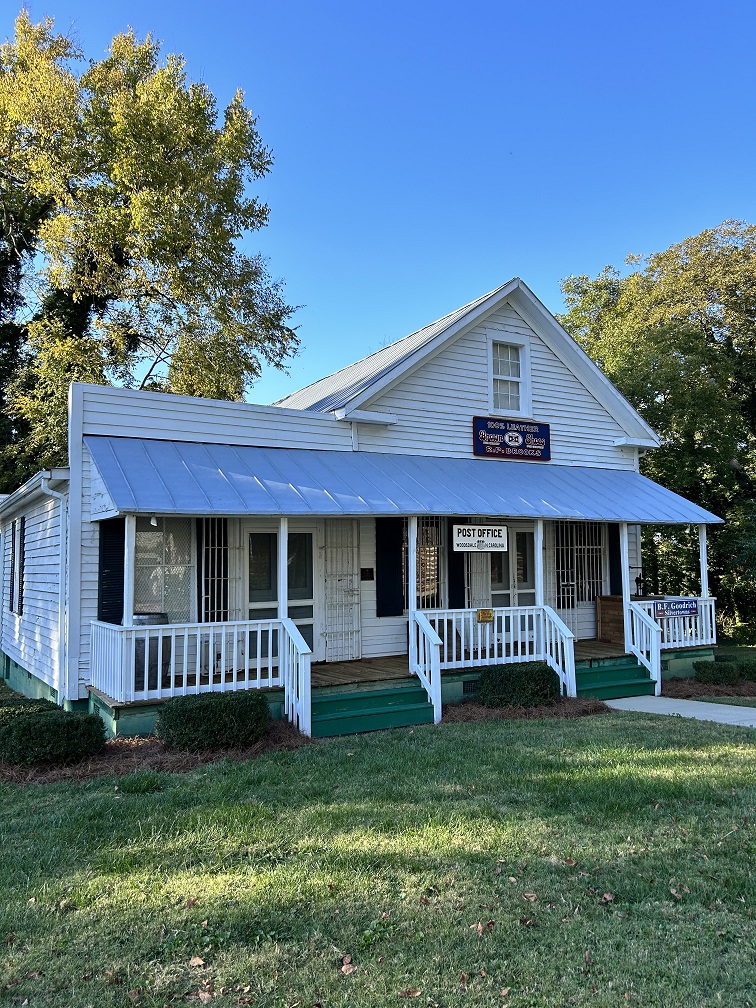
The Person County Museum of History has restored the R.P. Brooks General Merchandise building to its former glory. Courtesy Person County Museum of History
The Merriam-Webster Dictionary defines a general store as “a retail store located usually in a small or rural community that carries a wide variety of goods including groceries but is not divided into departments.” Driving down the backroads of any part of the rural south, you likely pass by these relics of the past. They are typically small wooden buildings, one story or two, with or without winged additions on the side. These now-empty store buildings were once the hub of the surrounding communities. Today, they are mostly abandoned, their iron-barred windows sometimes covered with paper, blocking the view into the past.
For all but our youngest generations, anyone who grew up in a rural community likely has a memory of visiting a general store. In their more recent version, these businesses were the purveyors of cold drinks, Nabs, hoop cheese, and a little bit of gossip on the side. Going further back, they were the only place some farm families had to purchase goods on a regular basis. Before Walmart and Target dotted the landscape, the old country store was the place where anything you didn’t make at home was purchased.
This general store was born of necessity. As people began to establish communities further and further from the cities, the day-to-day need for goods had to be met. Roads were a constant issue, whether being traveled by wagon, horse and buggy, or eventually motorized vehicles, getting from point A to point B was a true challenge. Even in the early 20th century, it was not uncommon for routes we travel today in the span of an hour or two to take four times as long. For farming families, it wasn’t feasible to spend that much time trying to obtain goods, so enterprising businessmen began opening stores in rural areas, capturing customers due to the convenience of having a store nearby.
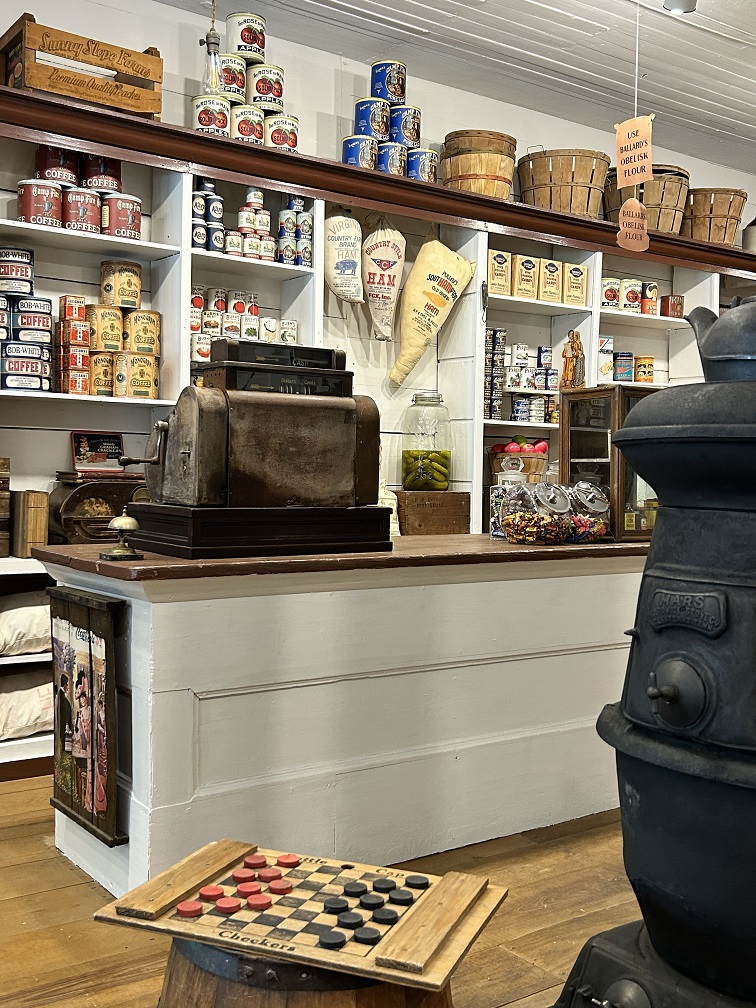
At the Person County Museum of History, we are lucky enough to have one of these buildings on our campus. For the past few months, we’ve been working to restock the store based on the invoices and ledgers left behind. And while we will never get it back to exactly how it was, the foresight of the donating family to preserve these functional papers allows us to be as authentic as possible. These small endeavors played a big role in rural life, and it is vitally important that we preserve this history.
Around 1890, the railroad made its way to Roxboro. This transportation line connected the city with Durham to the south and Lynchburg to the north, opening a more efficient means of transport for not just people, but goods as well. Following this development, Reuben Phillip Brooks, known to family and friends as Phill, opened his general merchandise store in the Woodsdale community of Person County, facing the train depot.
Phill came from a family of merchants. His father had operated a general store in nearby Daysville, and his brother operated an establishment in Oxford, in Granville County. The Brooks brothers knew well the challenges of farm life, having watched their father farm and run his store. They both decided that being merchants better suited them and dedicated their careers to this pursuit.
From 1893 into the 1940s, R.P. Brooks General Merchandise was one of the go-to suppliers for the local community. From plows to candy, and tobacco to fabric, nearby families could come into the store and pick up necessities. Depending on the success of the crops that season, they may have also been able to pick up some luxuries as well. Over the more than 40 years the store operated, there were shifts in community needs, as seen in the invoices for goods purchased. For example, as automobiles began to gain in popularity, the store had to stock items like tire tubes, oil, and fuel.
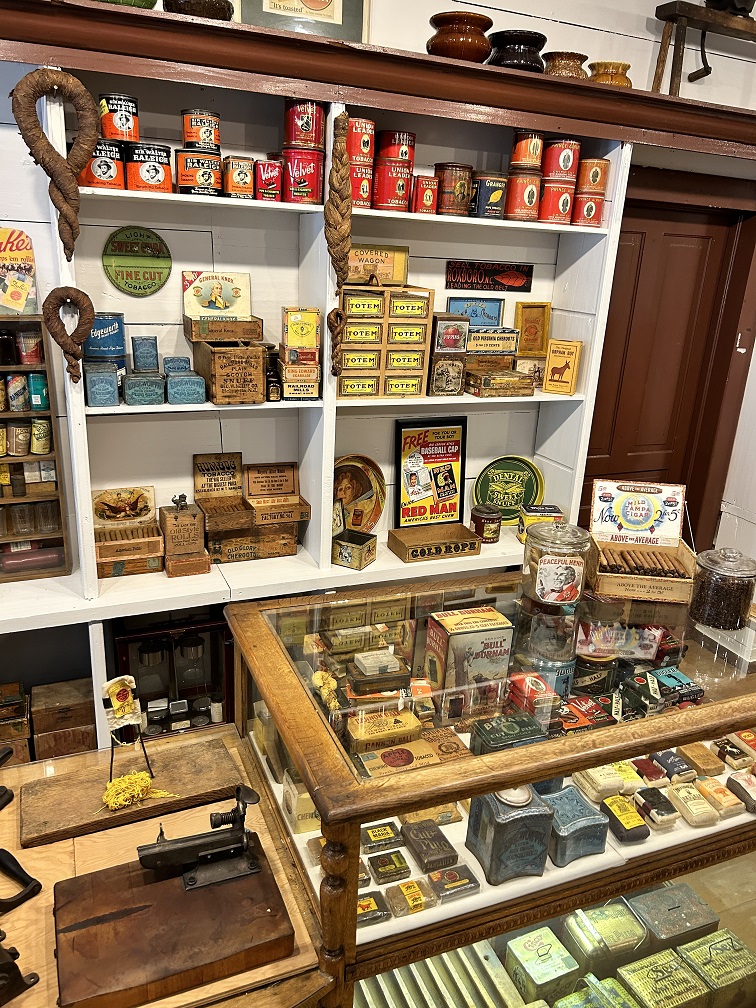
But the store wasn’t just a site to buy goods. Beginning in 1914, the Woodsdale Post Office was housed in the building and R.P. Brooks served as postmaster. Postmasters were paid a percentage of the cancellation costs, (postage) and Mr. Brooks wouldn’t have made more than $1,000 per year as postmaster. Regardless of the low income, the post office was a shrewd business move. Over the years, Woodsdale has had several stores. If customers typically purchased from another establishment, they might just shop at the Brooks store instead since they were already there to mail a letter or purchase a money order. The post office employed clerks as well as the rural delivery mail carriers. The two Woodsdale routes were first serviced by horse and buggy, then in later years by automobiles.
Hosting the post office came with heightened security measures. In the time before burglar alarms, stores like R.P. Brooks’s utilized iron bars over doors and metal screens on windows. These attempts to secure the premises were not always successful, however. On Dec. 29, 1915, the store and post office were robbed, with thieves blowing up the safe. This was a common occurrence at the time, and the proximity of the Brooks Store to the rail line made the getaway even easier.
Notices from the Postmaster General of the United States encouraged postmasters to purchase burglar- proof safes – one that could not be blown up. If they did not have that type of safe, they were encouraged to take any stamps or funds over three days’ worth of stock home with them to prevent theft. While that would keep the stamps and funds safe, it didn’t add to the safety of the postmaster’s family.
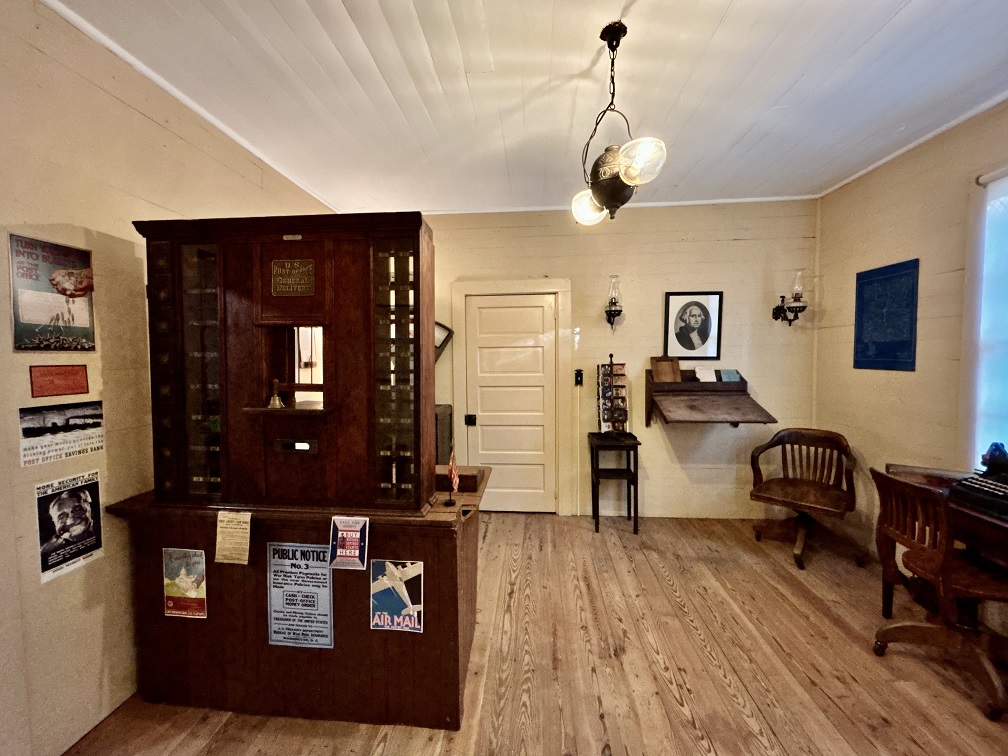
R.P. Brooks had a large family, both immediate and extended. Two years after opening the store, 25-year-old Phill married 19-year-old Alma Hall. They went on to have seven children: two boys and five girls. Mr. Brooks built a home for his family just up the hill from his store. In addition to the family, it often housed boarders as well, either salesmen or postal workers. Visiting family members would get off the train in Woodsdale and would either find a place to stay with the family or a wagon waiting to take them to the homes of other nearby family members.
Reuben Phillip Brooks died on Jan. 19, 1931, at the age of 60. His wife, Alma, became postmaster and, with the help of others, continued to operate the store and post office for several years. In 1977, Dorothy Brooks, daughter of Phill and Alma, moved the store from its original site by the railroad tracks to the family home just up the hill. She created a family museum, showcasing clothing and handwork by the family as well as her extensive collection of dolls.
In 1996, the family of R.P. and Alma Hall Brooks donated the store, its contents, and a large collection of family items to the Person County Museum of History. The building was relocated to the newly acquired property at 309 N. Main Street in Roxboro. This gift was the catalyst for other buildings and collections to make their way to the museum, which now comprises eight structures on four city lots.
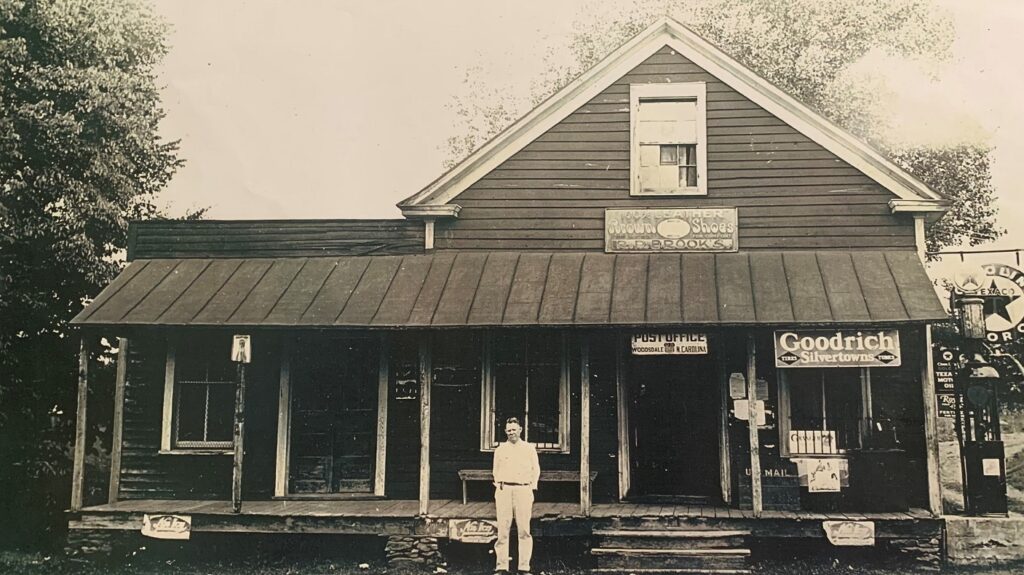
With financial support from the Person County Tourism Development Authority, generous donations by locals, and hundreds of hours of work by volunteers, the museum opened the R.P. Brooks General Store to the public at the end of October. The building, stocked with period items known to be sold in stores from the 1890s to the 1940s, highlights the importance of general stores to the communities they served. The public is invited to visit the museum and see the store for themselves Wednesday through Friday from 10 am to 4 pm and Saturday by appointment. Those who wish to donate funds or artifacts are encouraged to call the museum at 336-597-2884 or email personcountymuseumofhistory@gmail.com.

309 N. Main Street
Roxboro, NC 27573
(336) 597-2884
personcountymuseumofhistory
https://www.pcmuseumnc.org/
Learn more about the author at https://ncvamedia.com/authors/carrie-currie/






























































































